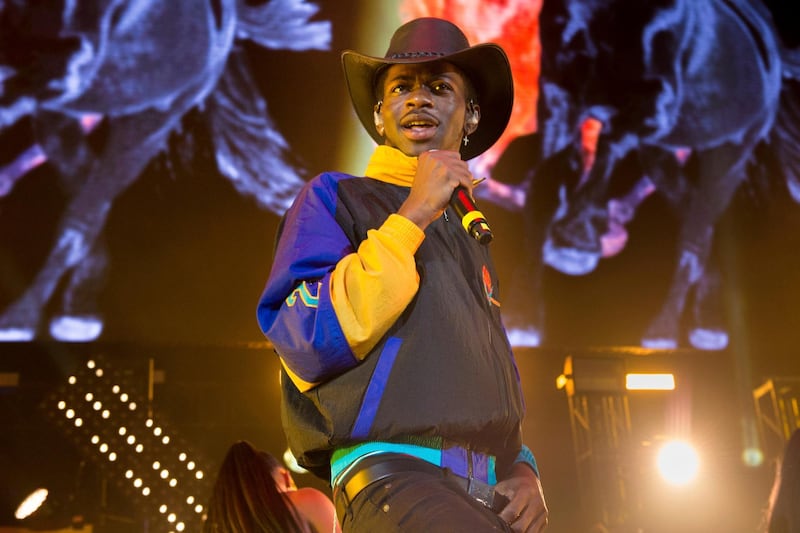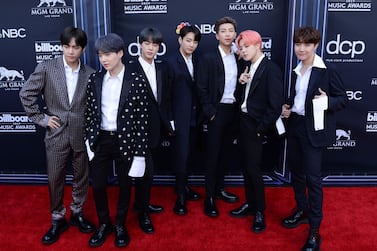Republic Records has deemed "urban music" out of tune.
The major US music label, home to big-selling artists Drake, Rihanna and Ariana Grande, released a statement on Saturday, June 6, that revealed it has ceased using the long-standing genre classification.
The changes are across the board, with the category removed from Republic’s marketing and promotions campaigns, as well as its internal divisions and job descriptions.
The company is now urging fellow labels to follow suit.
The statement adds: “It is important to shape the future of what we want [the industry] to look like, and not adhere to the outdated structures of the past.”
While the move represents the most effective measure taken by the music industry in the wake of the anti-racism protests sweeping the globe, the decision has been a long time coming.
Urban music has not only outgrown its relative effectiveness as a descriptor, but for decades has limited the career growth of talented black artists whose music was part of the mainstream.
It also exposes an ugly industry truth: the term and its past iterations have always served to make black artists more palatable to a white record-buying public.
It began with 'race records'
The term urban music can be traced back to the 1920s, when US racial segregation laws extended to the cultural sphere.
With popular radio the main music medium at the time, black composer and vaudeville performer Perry Bradford wanted to showcase his jazz protegee Mamie Smith to the masses.
With her single Crazy Blues already a live hit with black audiences, Bradford convinced music executive Frederick W Hager to sign her up to his label Okeh Records.
While the label was progressive enough in that it produced music from artists hailing from US immigrant communities – from German and Czech to Polish and Swedish – blues music was considered taboo by white audiences in that it was almost exclusively performed by African Americans.
Bradford managed to convince the label of Smith’s cross-over appeal, with the promise of a lot of cash to be made.
And in a feat of creative marketing at the time, the “race record” was born – a sweeping description encompassing all music created by black artists, ranging from blues and jazz to gospel and vaudeville.
The song, and the new genre it spawned, was a hit.
The white public took to the exciting new sound and made stars out of Duke Ellington, Ma Rainey and Jelly Roll Morton. As for African American communities themselves, who at the time had a fair share of disposable income, so-called 'race records' were a chance to support and celebrate talents of their own.
Not only did 'race records' represent the latest chapter of American popular music, but the income generated from its sales helped plant the seeds for the country’s first professional black music industry.
With interracial relations improving over the decades in the US, the term 'race records' – which was officially used right up until 1949 – began to be viewed as off-colour for the times.
Industry magazine Billboard put the name to pasture that year after it changed its Race Records Chart to Rhythm and Blues.
The racial undertones of 'urban music'
Urban music’s arrival to the fore 25 years later was seemingly by accident.
The term is largely attributed to black New York radio personality DJ Frankie Crocker when creating the radio station WBLS in 1974.
He coined the term to describe the inner-city club sounds that dictated his eclectic playlists: disco, funk, RnB and the early emergence of rap.
It was the success of the format, later emulated across multiple stations across the US, which got record label suits to adopt the term in marketing their new generation of black artists.
Urban music’s perception problem arrived not long after, when the music began getting mixed up with existing preconceptions of black communities.
With many living in the city, the word “urban” essentially became shorthand for “ghetto”, and with that came all of the associated stereotypes.
Helping the entrenchment of these perceptions were record label offices who opened urban music divisions across the globe.
As a result, once again, African American artists were denied their diversity of expression.
The effects continued over the following four decades with African American artists locked in within that urban music category, all while watching their music gain further popularity through its adoption by white “pop music” artists, from George Michael and Phil Collins to Adele and Ed Sheeran.
A new generation is changing the tune
Fortunately, the tide is turning against such antiquated industry terms.
With the emergence of streaming platforms and the “playlist” as the favoured choice of music consumers, the notion of genre is increasingly fading into the background.
Hastening that transition is a new generation of online-savvy artists whose immunity to categorisation is shaking up old and once-hallowed music institutions.
In 2019, rapper Lil Nas caused controversy when his twangy viral single Old Town Road was denied a seemingly destined top spot on the Billboard Hot Country Songs chart, after the organisation found the song lacking "enough elements of today's country music".
Critics, including the track’s guest artist, the celebrated country music singer Billy Ray Cyrus, rounded on the decision with accusations that the move smelt of cultural gate-keeping.
That same year, rapper Childish Gambino highlighted the Grammy Awards' growing irrelevance by not showing up to the ceremony to pick up the marquee prize, Song of the Year, for This is America. His move highlighted the Grammys' ongoing torrid relationship with black artists who, for three decades, isolated them within genre-specific categories.
Republic Record’s decision to call quits on 'urban music' is a major step in opening the industry gates that have been closed to talentedblack artists for generations.







